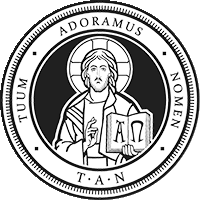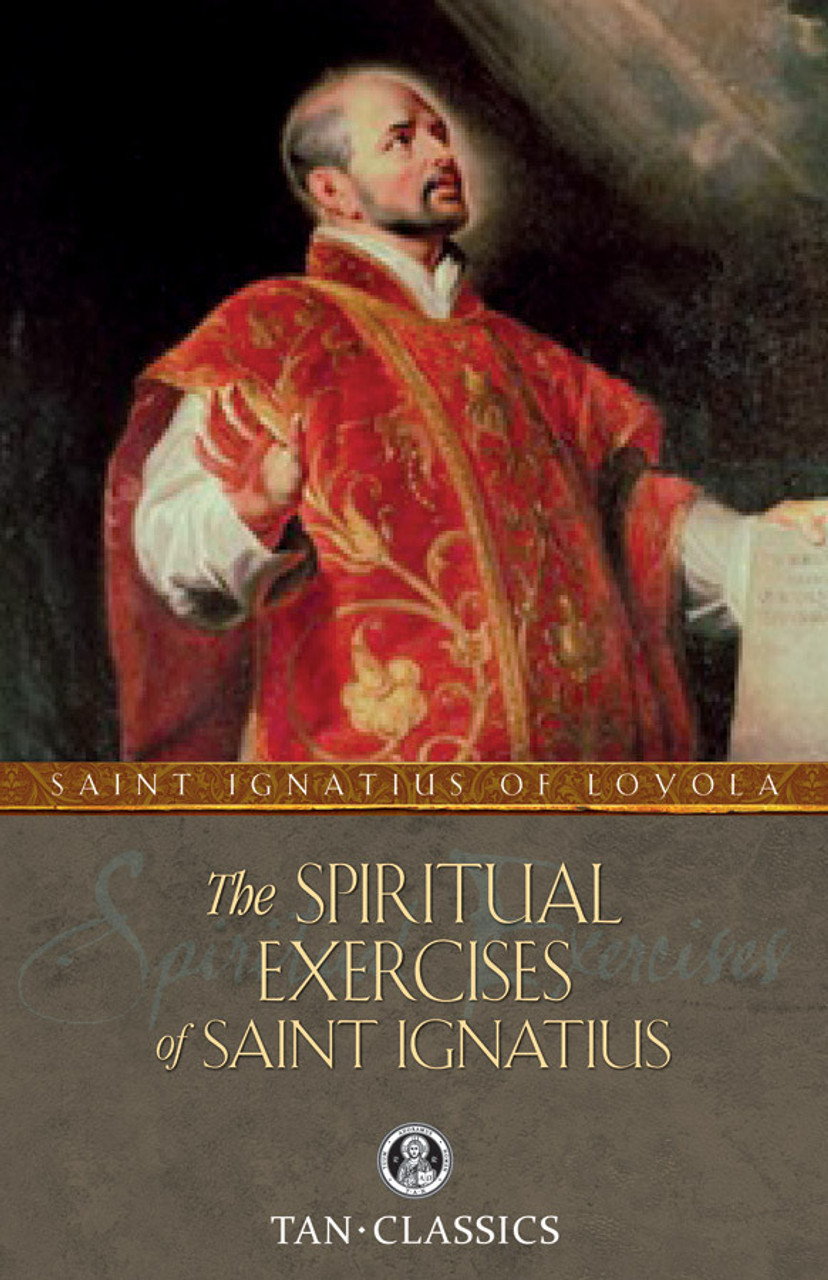The Incarnation is among the greatest acts of God’s love for mankind. As one the sublime mysteries of our Faith, frequent meditation upon it reaps abundant fruit for the soul. This excerpt is an exercise upon the Incarnation taken from The Spiritual Exercises of Saint Ignatius of Loyola.
Meditation
First prelude.
Recall the mystery—The angel Gabriel was sent from God into a city of Galilee called Nazareth, to a virgin called Mary. The angel being come in, said unto her: Hail, full of grace, the Lord is with thee; thou shalt bring forth a Son, and thou shalt call His name Jesus. Mary said, Behold the handmaid of the Lord, be it done to me according to thy word (Luke 1:26–38).
Second prelude.
Represent to yourself Nazareth and the humble house of Mary, where the mystery of the Incarnation was accomplished.
Third prelude.
Ask the grace of knowing well the infinite charity of the Word incarnate, that you may love Him with more ardor and serve Him with greater zeal.
First Point
Consider the state of the human race before the Incarnation of the Word. With the exception of a few faithful souls, men lived in a profound forgetfulness of their last end. The devils had altars among all the people; pride, voluptuousness, love of riches, reigned in all hearts; the knowledge of God disappeared gradually from their hearts: “Truths are decayed from among the children of men” (Ps. 11:2). The Jews themselves were, for the most part, scarcely nearer to God and salvation than idolatrous nations.
Witness the reproaches addressed to them by the Baptist—“Ye brood of vipers, who hath showed you to flee from the wrath to come?” (Matt. 3:7) And after him Our Lord—“You are of your father the devil” ( John 8:44). In a word, God was scarcely any longer known, or loved, or served on earth. And souls fell into the abyss every day in such numbers that hell was obliged to enlarge its precincts—“Hell hath enlarged her soul, and opened her mouth without any bounds” (Is. 5:14).
Could man in this state of degradation and misery reasonably hope that God would deign to pity him and save him? For should not God thrice holy, God infinitely just, turn away His eyes with horror from the human race, of whom it is written, “To God the wicked and his wickedness are hateful”? (Wis. 14:9). “Thy eyes are too pure to behold evil, and Thou canst not look on iniquity” (Hab. 1:13). Should He not treat man as He had treated the rebel angels and deliver him up forever to all the rigors of His vengeance?
Did not God, infinitely great, owe it to His glory not to pardon criminals, whose ingratitude He foresaw and who would only receive His mercy with indifference, contempt, resistance and hardness? Where would mankind be, where should we be, if God had only consulted the interests of His greatness or His justice? Let us, then, recognize the infinite need we have of His mercy, and return thanks to Him for not having abandoned us in our misery.
Second Point
Consider the intention of the eternal Word in the Incarnation. His design is to repair the glory of the Father by bringing man back to his end—that is, to the knowledge, love and service of God.
1. The Word became man to bring men back to the knowledge of God. Consider that the Incarnation is the plainest proof of the Divine perfections. It reveals to us the grandeur of God, which cannot be worthily adored except by a Man-God; His wisdom, which knew how to invent
this wonderful union of Divine and human nature for His glory and our salvation; His holiness, the offense to which can only be repaired by the satisfactions of a God; His mercy, which, instead of abandoning guilty man to eternal reprobation, takes pity on him and saves him; His love, which, not content with the gifts bestowed on man in the order of creation, wishes also to present him with a God as a Saviour.
2. The Word becomes incarnate to recall men to the love of God. Consider that creatures, instead of leading man to God, usurped all the affections of his heart. What does the Divine Word do to restore this heart to the empire of charity? Because man is under the dominion of his senses, He appears in a sensible form; because he is smitten with the love of creatures, He makes Himself one of them—He becomes man; and that He may more irresistibly captivate the human heart, He gives the first example of the love He asks. Recall the great precept of charity, “Thou shalt love the Lord thy God with thy whole heart, with thy whole soul, and with thy whole mind, and with thy whole strength” (Mark 12:30). Recall also the whole life on earth of the Word incarnate. See Him bestowing on our redemption all His thoughts, all His affections, all His works, His humanity, His entire divinity—and say, has He not fulfilled the precept of charity in its full extent toward man?
3. The Word became incarnate to recall man to the service of God. Consider that precepts no longer sufficed to teach man how God should be served. It was because of this that the Divine Word came to instruct us, not only by words, but also by example. His whole life is only a practical lesson of devotion to His Father’s service. What do we see in it in fact? (1) A Man-God, who, from the first moment of His conception, offers Himself to His Father. This is to teach us that there is not a single moment of our lives that does not belong to God. “When
He cometh into the world He saith: Sacrifice and oblation Thou wouldest not; but a body Thou hast fitted to Me; then said I, Behold I come to do Thy will, O God” (Heb. 10:5–9). (2) A God who fulfilled all the details and observances of the law, which could not bind Him. This was to teach us that He wishes to be served with a religious obedience to all His commandments. (3) A God who devotes Himself to every sacrifice, even to death upon the cross. This is to teach us that God merits to be served, however much it may cost to nature.
Meditate attentively on the great end that the Word proposed to Himself in the Incarnation, and ask of Him the grace to correspond to it faithfully.
Colloquy with the Three Persons of the Adorable Trinity
Adore the infinite charity of God, who deigns to save men, notwithstanding their unworthiness and their ingratitude. Render thanks to the Word incarnate. Address yourself to Mary, and beg of her to obtain for you the grace of a tender love and faithful imitation of her divine Son.
Anima Christi. Pater. Ave.
ooo
This article is taken from a chapter in The Spiritual Exercises of Saint Ignatius of Loyola by Saint Ignatius of Loyola which is available from TAN Books.









